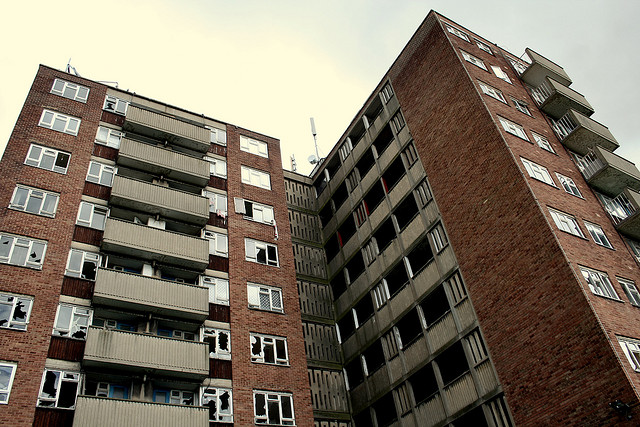 You would be forgiven for thinking that the UK’s housing crisis is on its way out, especially with daily news reports claiming that the amount of prospective buyers looking to purchase properties is outstripping current supplies. However, the truth is that we still have a long way to go when it comes to fixing the issues in the UK’s housing market, a fact that has been highlighted by recent reports concerning social housing issues across the country.
You would be forgiven for thinking that the UK’s housing crisis is on its way out, especially with daily news reports claiming that the amount of prospective buyers looking to purchase properties is outstripping current supplies. However, the truth is that we still have a long way to go when it comes to fixing the issues in the UK’s housing market, a fact that has been highlighted by recent reports concerning social housing issues across the country.
For example, just this week the think tank Policy Exchange published a report saying that the government should be ashamed of the state of the UK’s social housing estates, and that they need to “turn around the nation’s sink estates” within 10 years. The report added that numerous social estates have been neglected over the years which has led to an increase in crime and ‘ghettoism’, resulting in social problems including lone parents with little education and poor parenting skills, child neglect, domestic violence, unemployment and poor relationships with the police.
Gavin Knight, the author of the report, said: “It would be morally inexcusable for policymakers to turn their backs on Britain’s sink estates. Deprived council estates can be transformed from dangerous backwaters. Gang members can be presented with a route away from crime towards a better life. Children and families living in these troubled communities can have their life changes dramatically enhanced. But only if the government commits to a 10-year programme to clear up the worst estates in the country.”
However, Henry Gregg, assistant director of communications and campaigns at the National Housing Federation, argues that they have been focussing heavily on improving the social housing sector for a while now. He said: “For decades, housing associations have been investing in estates and communities to regenerate some of the most disadvantaged areas of the country. Clearly there is more work to be done which is why we welcome the mayor and chancellor’s recent announcement of £150m for housing estate regeneration.
“We want the next government to commit to end the housing crisis within a generation with a long-term plan to deliver healthy, safe and secure neighbourhoods for all.” Unfortunately for the National Housing Federation, improving the social housing sector in the UK is becoming increasingly difficult thanks to the government’s Right to Buy scheme. Under this scheme 2,845 social homes were sold in the second quarter of this year, leading to a considerable reduction in the amount of social housing available in the UK.
Catherine Ryder, head of policy at the National Housing Federation, said: “We support measures that help people buy their home, but not at the expense of affordable housing for those in need and languishing on waiting lists. As these figures show, the discounts on offer now are very high, over £100,000 in London, meaning homes are sold at a price that makes replacing them very difficult. Right to Buy needs to be urgently reformed to make sure every home sold is replaced by a new affordable home, otherwise the consequences for the next generation could be severe.”
“There are already nearly 1.7 million people on local authority housing waiting lists across England. Selling off the homes we do have at a price which leaves very little to replace them is making this problem worse. While the Government has promised that every home sold will be replaced, the current figures show this is clearly not happening.”
Due to the shortage of properties both in the private and social housing sectors a new website has been set up enabling potential buyers to question the government about properties or pieces of land they own that are unoccupied or unused. For years the government has urged landlords not to rely on unoccupied property insurance in order to leave properties off the market for a considerable amount of time, and now the same is being asked of the government.
The minister for the Cabinet Office, Francis Maude, said: “As part of our long-term plan for a stronger economy we are slashing our own costs and getting the most out of the property we own. Since the 2010 general election we have got out of 1,250 properties, but we need to do more. We want the public to use this new map and the right to contest to challenge us to release properties we are not using efficiently enough to cut the deficit, support growth and provide more houses.”


